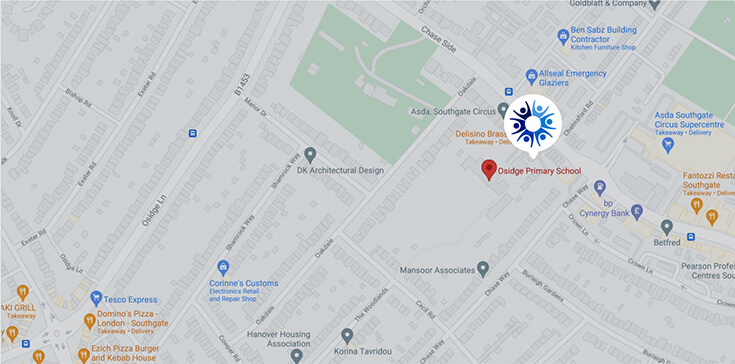English
Making links to existing learning is key to children’s understanding and so all our English work is strongly linked to the half-termly topic. Rich texts, fiction and non-fiction are used as part of our daily reading lessons and support the daily writing lesson. We follow the National Curriculum year group expectations for English.
You can view the objectives they will be taught, in both writing and reading, in the documents below:
To view the curriculum map showing how the topic links with English, please see the relevant year group page.
Phonics
Words are made up from small units of sound called phonemes. Phonics teaches children to be able to listen carefully and identify the phonemes that make up each word. This helps children to learn to read words and to spell words. At Osidge, we teach phonics using the ‘Read Write Inc. Phonics’ Programme. This is a phonics resource aims to prepare children for learning to read by developing their phonic knowledge and skills. It sets out a detailed and systematic programme for teaching phonic skills for children, with the aim of them becoming fluent readers by age seven.
Parents can learn more about the Read Write Inc. Phonics Programme on the Oxford Owl website.
Phonics and tricky words:
Words help your child connect phonics and choose the correct phonics in their spellings. At Osidge, we use the Read, Write, Inc pictures and words shown on these sounds mats. It will help your child if you use the same language and words when learning the sounds and how to write them.
Reading at home: Whilst children are following the Read Write Inc. Phonics Programme, they will bring home a book from this scheme, which is matched to their current phonics learning. In addition to this, we encourage children to visit the library, read widely and to listen to adults reading stories and books to them. All children have a reading book that they take home; we recommend that children should read at home daily to support their language and vocabulary development, and their reading fluency.
Once chilren are confident to read independently, they are encouraged to read daily at home. The school has recommended reading lists which we share with the children.









